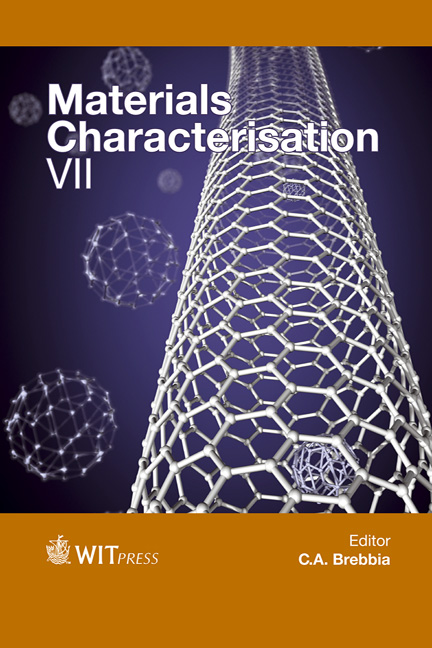The Effect Of Soil On The Biodegradable Behavior Of Green Composites Under Various Environmental (ambient) Temperatures
Price
Free (open access)
Transaction
Volume
90
Pages
9
Page Range
47 - 55
Published
2015
Size
1,684 kb
Paper DOI
10.2495/MC150051
Copyright
WIT Press
Author(s)
H. Katogi, K. Takemura
Abstract
In this study, the biodegradable behavior of green composites under different pH (concentration of hydrogen ion) soil and environmental temperature was investigated. The biodegradation test was conducted in 90 days. The environmental temperatures were room temperature (RT) and 50°C. The acid soil (pH 4.2), neutral soil (pH 5.5) and alkali soil (pH 7.4) were used as environmental soil. A quasi-static tensile test was conducted after the biodegradation test. As a result, the mass rate of green composites in all soils at RT almost did not change by 60 days. After that, their mass rates decreased. The mass rates of green composites in all soils at 50°C moderately decreased with an increase of biodegradation time by 60 days. After that, their mass rates rapidly decreased. In the case of all soils at RT and 50°C, the tensile strength and Young’s modulus of green composites decreased with an increase of biodegradation time by 60 days. After that, they did not change any more. The tensile strength of the composites in all soils at 50°C decreased with an increase of biodegradation time by 60 days. After that, they moderately decreased except for acid soil. Young’s modulus of composites in all soils for 30 days at 50°C rapidly decreased. After that, their Young’s modulus moderately decreased. Their results implied that the tensile property of green composites decreased due to the biodegradation of PLA resin in soils at environmental temperatures.
Keywords
green composites, PLA, biodegradable behavior, tensile property, environmental temperature, pH soil





